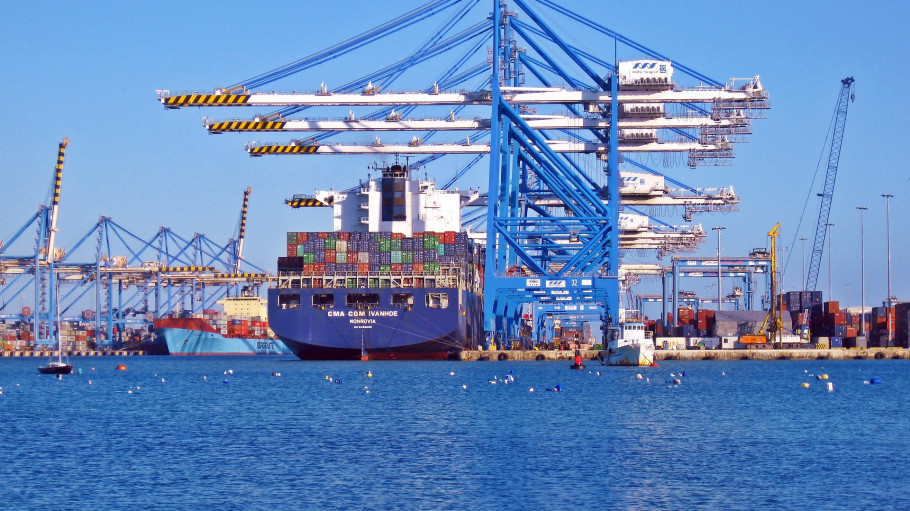
Press releases » “Final safeguard measures welcome but effectiveness could be hampered”, says EUROFER
“Final safeguard measures welcome but effectiveness could be hampered”, says EUROFER
Downloads and links
Recent updates

Brussels, 17 January 2019 – Member states have approved the European Commission’s final safeguard measures on steel. With imports surging by 12% in 2018, the need for an effective defence mechanism is essential, though elements of the final measures are not ideal.
“EU steel imports rose by an unprecedented 12% in 2018. For every three tonnes of steel blocked by the US’ section 232 tariffs, two tonnes have been shipped to the open EU market”, said Axel Eggert, Director General of EUROFER.
“It was important that final safeguard measures be approved by the member states; these will now be implemented by 4 February 2019. While we welcome this endorsement, we are nevertheless worried that the form of the final measures may undermine their intended safeguarding function”, stressed Mr Eggert. “It is therefore vital that the Commission closely monitors EU steel demand development and adjusts the generous increase of the tariff-free import quota accordingly in July 2019, if necessary”.
The final measures include an immediate ‘relaxation’, increasing the size of the quota by 5% (calculated on the base years of 2015-2017) – with a further 5% relaxation in July 2019 and another 5% in July 2020, subject to review. This is despite the fact that steel demand is expected to increase by only 1% in 2019.
“This means that the rise in the quota may be multiple times larger than the increase in the size of the market, leaving EU producers to fight over a shrinking market share. Imports already account for around a quarter of the market, up from less than a fifth historically”, added Mr Eggert.
The final measures give country-specific quotas to the main steel exporters to the EU. The remaining ‘residual’ quota for other countries will be quarterly. However, countries with their own quota are free to consume the residual quota once they have used up their own.
The final safeguard measure also continues to exempt some developing countries because their import share was below 3%, despite exceeding this threshold during 2018. This is, for instance, the case for Indonesia, whose share of the stainless hot rolled flat steel product segment reached 9.5% in 2018. It is essential that such countries lose their exemption in upcoming revisions.
“So, while we reiterate our welcome for the final measures, and the overwhelming backing they have received from member states, we caution that steel demand must be monitored closely in the coming periods if this mechanism is to prove effective in the long run”, concluded Mr Eggert.
***
Contact
Charles de Lusignan, Spokesperson and head of communications, +32 2 738 79 35, (charles@eurofer.be)
About the European Steel Association (EUROFER)
EUROFER AISBL is located in Brussels and was founded in 1976. It represents the entirety of steel production in the European Union. EUROFER members are steel companies and national steel federations throughout the EU. The major steel companies and national steel federations in Switzerland and Turkey are associate members.
About the European steel industry
The European steel industry is a world leader in innovation and environmental sustainability. It has a turnover of around €170 billion and directly employs 330,000 highly-skilled people, producing on average 160 million tonnes of steel per year. More than 500 steel production sites across 22 EU Member States provide direct and indirect employment to millions more European citizens. Closely integrated with Europe’s manufacturing and construction industries, steel is the backbone for development, growth and employment in Europe.
Steel is the most versatile industrial material in the world. The thousands of different grades and types of steel developed by the industry make the modern world possible. Steel is 100% recyclable and therefore is a fundamental part of the circular economy. As a basic engineering material, steel is also an essential factor in the development and deployment of innovative, CO2-mitigating technologies, improving resource efficiency and fostering sustainable development in Europe.

Download files or visit links related to this content
Strasbourg, 17 December 2025 – The European Commission’s latest proposals on the Carbon Border Adjustment Mechanism (CBAM), unveiled today, correctly identify several loopholes that risk undermining its effectiveness, notably regarding EU exports, downstream sectors and circumvention practices. However, despite these laudable efforts, the measures put forward fail to deliver a comprehensive and durable response to carbon and jobs leakage, warns the European Steel Association (EUROFER).
A milestone occasion to quickly and effectively restore affordable electricity, to relaunch the
decarbonization and strengthen the international competitiveness of the European steel
industry.
Brussels, 02 December 2025 – Unchanged negative conditions – U.S. tariffs and trade disruptions, economic and geopolitical tensions, protracted weak demand and still high energy prices – continue to weigh on the European steel market. EUROFER’s latest Economic and Steel Market Outlook confirms for 2025 another recession in both apparent steel consumption (-0.2%, unchanged) and steel-using sectors (-0.5%, revised from -0.7%). A potential recovery is expected only in 2026 for the Steel Weighted Industrial Production index (SWIP) (+1.8%, stable) and for apparent steel consumption (+3%, slightly revised from +3.1%) – although consumption volumes would still remain well below pre-pandemic levels. Steel imports retained historically high shares (27%), while exports plummeted (-9%) in the first eight months of 2025.